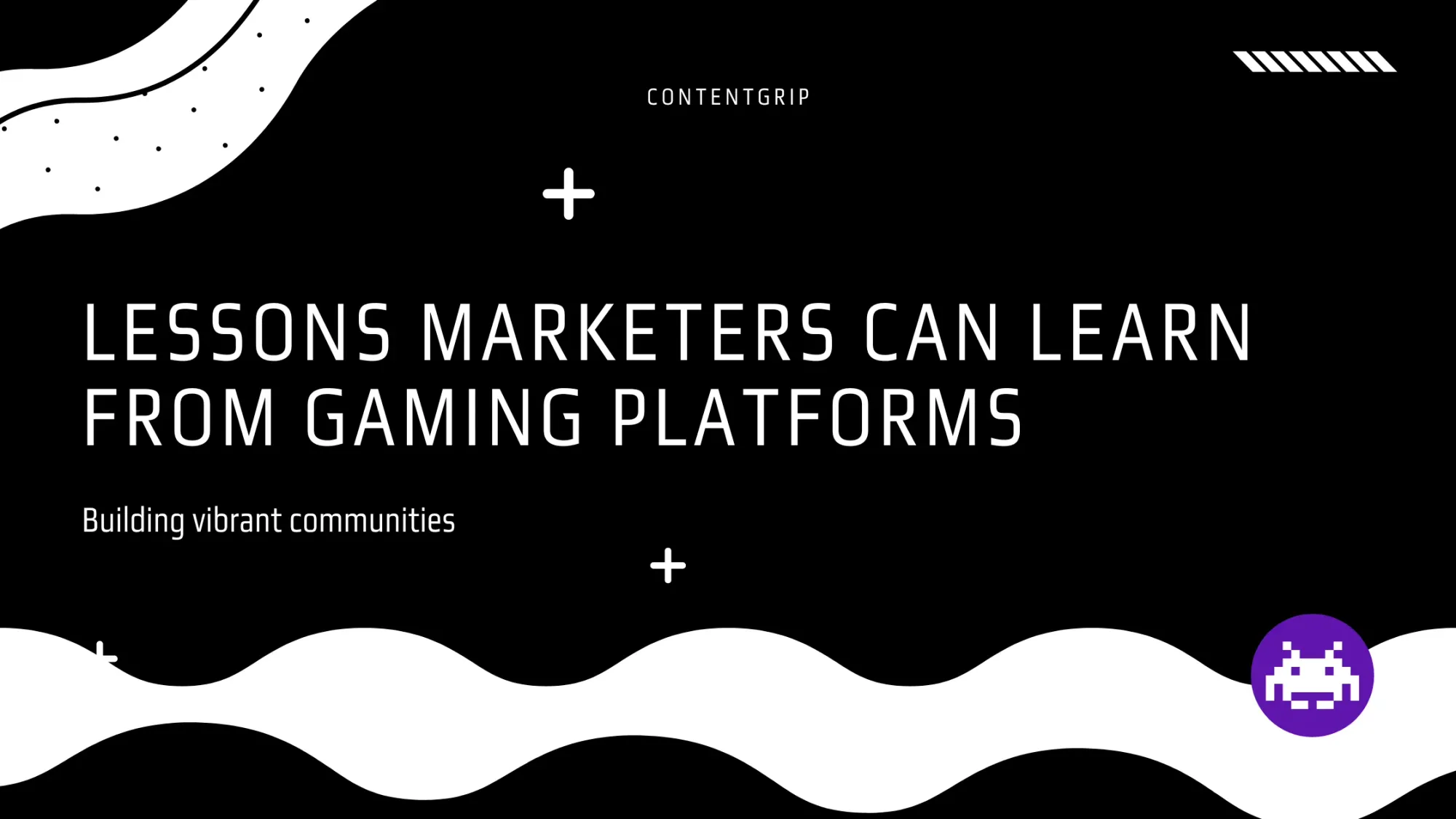Building vibrant communities: lessons marketers can learn from gaming platforms
From SEO dominance to influencer collaborations, discover actionable lessons digital marketers can learn from gaming platforms.

Gaming platforms have mastered the art of building highly active and loyal communities. By creating immersive experiences, fostering shared interests, and enabling interactive environments, these platforms drive engagement at a scale few industries can match.
This success is reflected in the rapid growth of the global gaming community, which is projected to increase from 2.69 billion players in 2020 to approximately 3.32 billion by 2024. Such numbers highlight how gaming has become more than just entertainment—it's a dynamic social ecosystem where users connect, collaborate, and compete.
Furthermore, research indicates that YouTube videos created by top gaming influencers can increase game usage by 0.7% and sales by 1.6% on the day of posting, with effects lasting for several days.
Marketers can draw inspiration from these methods where the key lies in creating spaces where users can interact—whether through forums, multiplayer environments, or social media groups. These dynamic ecosystems cultivate a sense of belonging, driving brand loyalty, organic advocacy, and sustained engagement.
Key insights from gaming platforms
Gaming platforms like Twitch and YouTube Gaming excel at creating highly targeted and engaging content that directly aligns with their audience's passions. From game trailers and patch notes to community updates and user-generated content, they leverage storytelling and value-driven messaging to keep gamers invested.
Marketers can adopt a similar approach by identifying their audience's interests and pain points, delivering consistent content such as blog posts, videos, and interactive campaigns to build lasting engagement and loyalty.
In addition to content creation, gaming platforms have mastered SEO to dominate search engine rankings. By targeting niche keywords, leveraging long-tail queries, and producing evergreen content like game guides and FAQs, they ensure their websites align with users' search intent.
Platforms like IGN and GameSpot consistently attract millions of organic visitors, showcasing the power of SEO when combined with valuable, relevant content. For instance, IGN receives approximately 114.3 million visits per month, with 72.18% of this traffic driven by organic search. Similarly, GameSpot attracts around 46.7 million monthly visits, with 82.57% coming from organic search.
Gaming platforms also prioritize link building to boost visibility and authority. They earn backlinks through strategic partnerships, forums, and online communities, enhancing their search performance. Marketers can replicate this success by identifying competitive keywords, producing high-quality content, and building backlinks through guest posts, influencer collaborations, and industry partnerships.
Leveraging influencers, affiliates and gamification: replicating success from gaming
Gaming platforms have perfected strategies like influencer collaborations, affiliate partnerships, and gamification to drive engagement and growth. Influencer marketing plays a central role, with platforms partnering with streamers, YouTubers, and content creators to reach broader audiences.
For example, popular streamer Ninja has worked with games like Fortnite to amplify reach, while Instagram influencer Valkyrae (@valkyrae) frequently promotes games to her large following. Marketers can adopt this approach by partnering with niche influencers to deliver authentic storytelling and boost brand awareness.
Affiliate marketing and cross-promotions are also critical to gaming success. Platforms like SkyCoach, for instance, offer gamers valuable services, such as the best place to buy WoW gold. SkyCoach actively collaborates with influencers and content creators to promote their services, leveraging their audiences to build trust and visibility within the gaming community. By partnering with these creators, SkyCoach taps into targeted user segments and drives significant engagement. Collaborating with influencers or brands through affiliate programs allows marketers to replicate this success, reaching new audiences and generating mutual value.
Lastly, gamification remains a powerful tool for engagement. Gaming platforms use features like leaderboards, rewards, and achievements to retain players, and marketers can replicate these techniques to make campaigns more interactive.
For instance, Nike's "FuelBand" campaign is one of the best gamification examples in the fitness industry. In this campaign, users could track their physical activity using the FuelBand device, earn points, set goals, and compete with friends, effectively turning fitness into an engaging and competitive game.
Loyalty programs, quizzes with point systems, and referral challenges create excitement while leveraging users' natural desire for competition and achievement, ultimately boosting participation and retention.
The success of gaming platforms highlights the importance of community-building, strategic content, and creative marketing. Key lessons include adopting influencer partnerships, optimizing SEO for visibility, and using gamification to make campaigns more dynamic. By focusing on user engagement, marketers can replicate gaming platforms' achievements across industries.

